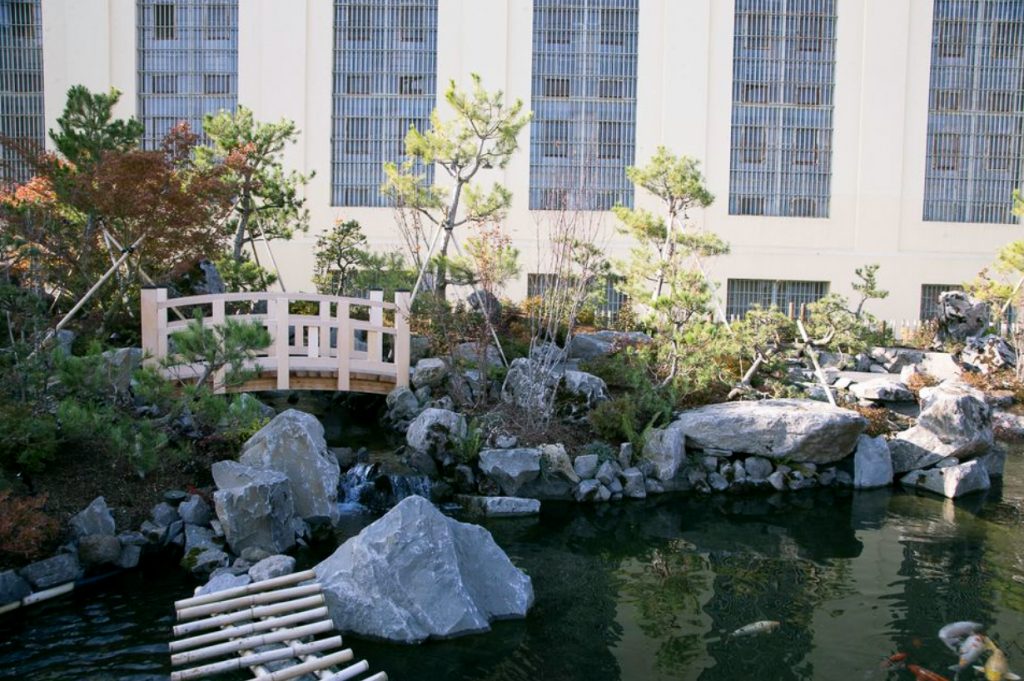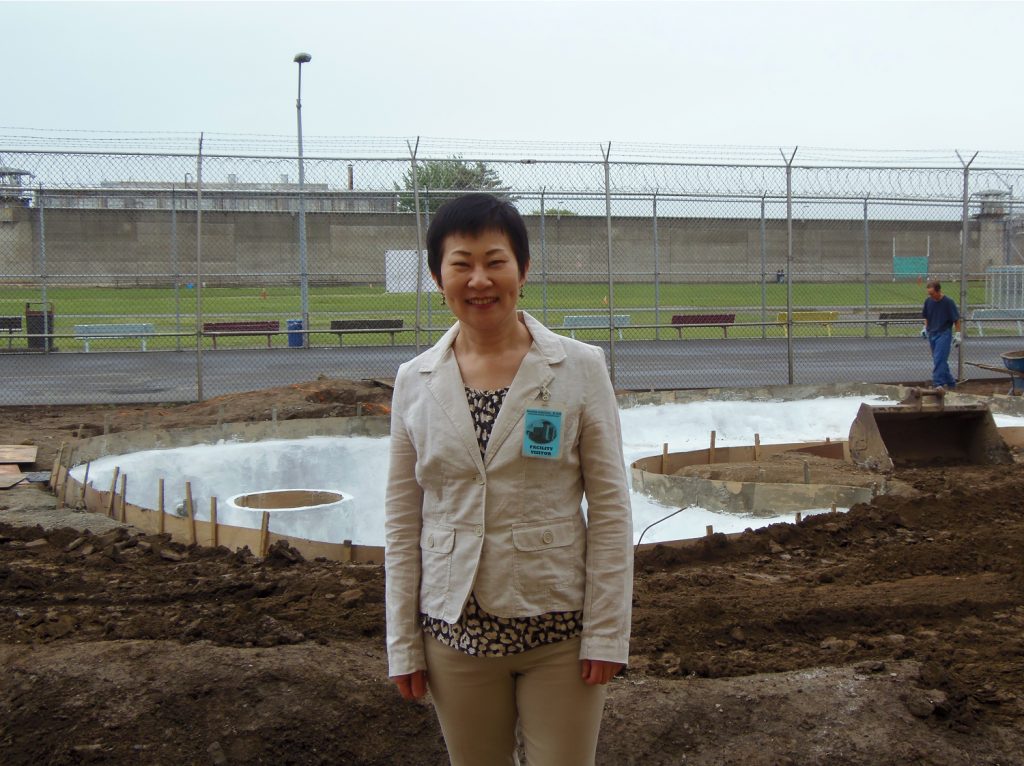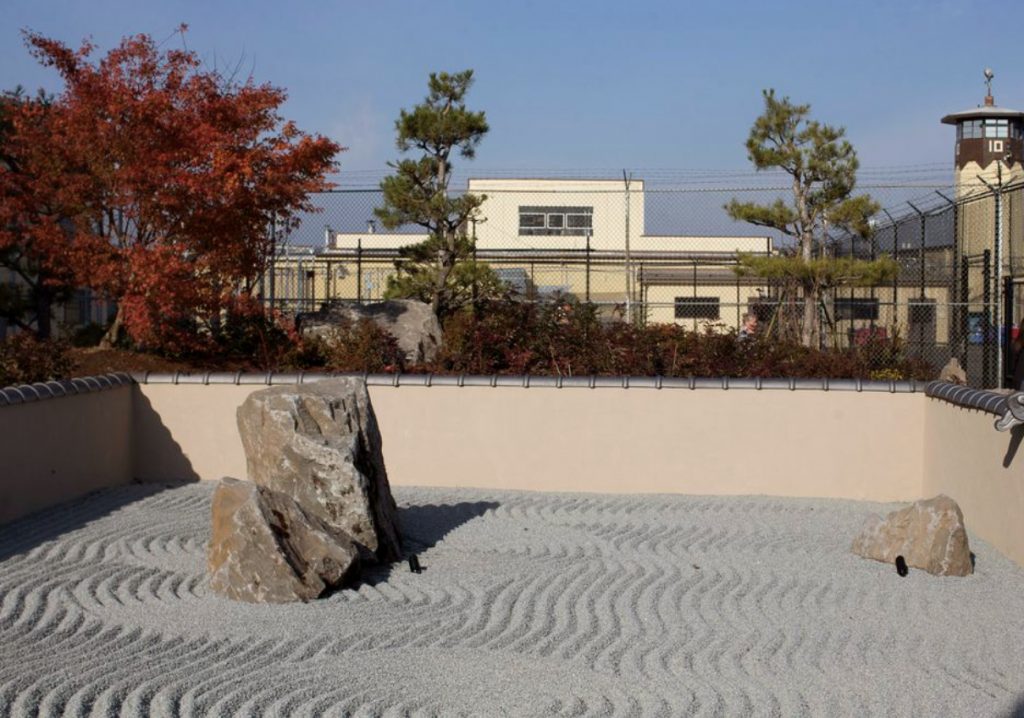
Sage Kiernan-Sherrow | News Editor
“Punishment doesn’t work … we need to find an alternative way to rehabilitate offenders,” said criminal justice professor, Miyuki Arimoto, during her talk, “Transformative Justice: Diminishing Boundaries through the Healing Garden Project at the Oregon State Penitentiary,” held on Nov. 13. The Healing Garden Project began five years ago as a grassroots effort combined with an inmate-led initiative centered around the idea of a “koi pond” being indoctrinated into the prison environment.
“Prison is a boring, monotonous place,” stated Arimoto, “(the inmates) thought that nature might help to reduce altercations.”
Over time, the idea of creating a fully functional Japanese-style garden was formed. Inmates wrote grants and the project developed collective advocacy, resulting in approximately $500,000 being raised. Renowned Japanese garden designer, Hoichi Kurisu, donated his design and equipment to the project. He even advocated for inmate involvement in construction, saying that “this is (part of) the necessary process of healing,” according to Arimoto.
Amassing a total of 13,000 square feet, the garden is only the second in the nation to exist within prison walls — the first being in Maryland — and 180 inmates spent over 12,000 hours developing it.
In a video shown during the presentation, an inmate named Johnny Cofer stated, “there was so much more at stake than just building something aesthetic; there was potential for building a space that could make a really impactful difference on the lives of people that live here … I can remember that the best times in my life were spent out in nature … this place … will be transformative.”

Professor Arimoto recalled a similar testimony, where one inmate she described as “macho” broke down after thanking her and telling her that he could not stop touching the trees and smelling the earth, after not having been able to for the past 40 years.
“Past research suggests that exposure to nature improves certain conditions such as depression, anxiety and Alzheimers … the recovery process becomes faster,” Arimoto recounted.
Arimoto is a member of a team conducting an impact study on the effects of the healing garden on inmates and staff. Using both qualitative and quantitative research over the course of two years, Arimoto hopes to analyze not only psychological effects but also the effects of a transformative justice system. Arimoto defines transformative justice as an expansion to traditional restorative justice, which “recognizes the potential for human growth … and provides (inmates) with an opportunity to make amends.”
“They are paying back society by transforming themselves for the better,” said Arimoto.

However, Arimoto also admits that there have been some criticisms about the project, citing complaints about using the money for a garden rather than using it to help transition inmates back into society and fears of violence within the garden.
Arimoto combated these fears, saying the garden will help “to create nice neighbors instead of angry neighbors,” and will assure that inmates must go through a strict screening process to be able to utilize the garden.
“Without trying, we won’t know if it works or not,” stated Arimoto. “It might not be the solution, but it might help to reduce recidivism.”
Contact the author at howlnews@wou.edu
Photos courtesy of Professor Miyuki Arimoto

